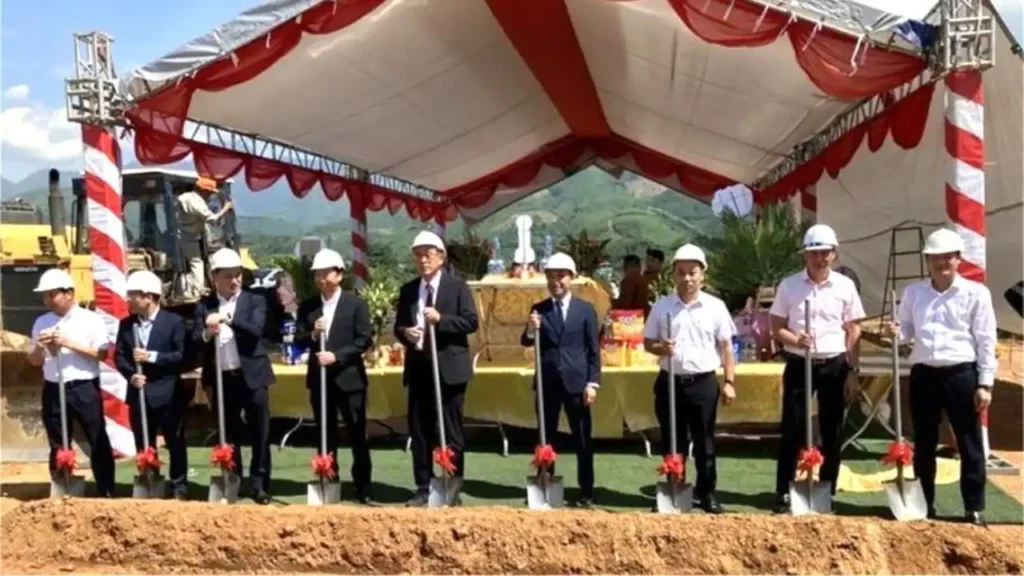
Photo courtesy of Erex.
- Erex builds two biomass power plants in Tuyen Quang and Yen Bai, Vietnam; this is to achieve the country’s renewable energy targets.
- The plants will burn 500,000 tons of wood residue a year; each will generate 50 MW of power.
- Vietnam’s biomass plants enter PDP VIII as it bends towards net-zero by 2050.
- The projects are funded by the JCM of Japan.
Japan’s Erex Co., Ltd. has begun construction on two biomass power plants in northern Vietnam, in Tuyen Quang and Yen Bai. According to the company, this marks a pivotal milestone yesterday, for these will be the first three biomass plants under Vietnam’s national power development plan VIII (PDP VIII), toward net-zero emission by 2050. These projects are a boon for Vietnam’s renewable energy sector.
The new development by Erex to begin construction of two biomass power plants falls in place with the greater effort towards renewable energy in Vietnam. Erex intends to build almost two dozens of biomass power plants across the country, and these will be a part of the various sets that form part of Vietnam’s PDP VIII. As has been said previously, the ultimate vision is becoming carbon neutral and achieving net-zero carbon emissions by 2050.
Also read: Latest News on Bioenergy, Biomass, Biofuels, and more
All the new plants will have a generation capacity of 50 MW each and are thus very worth it to the power grid of Vietnam. The facilities will burn about 500,000 tons of wood residue yearly to fuel them. This method is not only environmentally friendly but also wastes nothing while contributing to clean energy production.
The cost of electricity will be sold at 8.47 U.S. cents per kilowatt hour and which will make the price very attractive to energy buyer. More importantly, the resulting plants will significantly help meet the country’s energy requirements while supporting its commitment to emissions reduction.
Erex’s endeavour is being funded by Japan’s Ministry of the Environment through the Joint Crediting Mechanism (JCM) fund. There’s little question the biomass initiatives stand to bring value to such projects, especially in their front-end construction costs. In May, Erex said that the Yen Bai plant represents an investment of between $100 million and $120 million, the company said it was a “very serious commitment” to such renewable energy initiatives.
These biomass plants will take around 2.5 years to construct and are expected to be completed in a few years from now. Once such plants are commissioned, they would provide clean energy to Vietnam’s grid and be helpful in lessening the dependence of the country on fossil fuels.
Erex new biomass power plants signal a huge leap for Vietnam in its renewable energy journey-a leap that would help the country meet its ambitious net-zero emissions target by 2050. With available financing from Japan and commitment to sustainable energy, these projects can become a future milestone in further biomass developments.
In the course of construction, this sector will be watching to ensure that the plants are well-established and doing great, the positive impact promised on both the environment and the local community.
